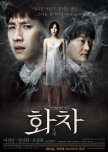
Flawed but interesting suspense story
Helpless was a bittersweet watch as it starred the late Lee Sun Kyun as a desperate man searching for his missing fiancée. Director Byun Young Joo directed this film adapted from the Japanese novel, “Kasha.”
On the way to deliver their wedding invitation to his parents, Jang Moon Ho’s fiancée disappears from his car while he is purchasing coffee and snacks at a rest stop. The police ignore his requests for help assuming she’s a runaway bride. When his every step leads to more questions, he calls upon his old friend and ex-police officer Kim “Everyone Was Taking Bribes” Jong Geun. The trail to Kang Sun Young and her past becomes increasingly dark and twisted.
The acting in this film was quite strong. Each of the three main actors pulled off complex and believable performances. The first and last acts were tense and well crafted, though the ending tiptoed into overwrought territory. The middle became weighted with too many characters and not enough attention paid to the most interesting one…Kang Sun Young.
I don’t want to write anything that would fall into spoiler territory, for this film is best enjoyed going into it knowing little about it. The pace could be painstakingly slow at times carried only by the actors and their commitment to their characters and the story. Helpless was more suspense than thriller, but worth a watch if you enjoy this genre.
12 September 2025
Triggers: Strong allusions to sexual assault and trafficking, suicide. Butterfly murder.
Seeing Lee Sun Kyun-whatever his problems, he didn't deserve the death penalty he sentenced himself to. RIP.
Was this review helpful to you?

"Will you wait for me?"
Somewhere Winter told the story of a Beijing university student’s up and down relationship with a Taiwanese businessman. An Ran would have to decide how long she was willing to wait for Qi Xiao and if the timing would ever be right.An Ran desperately wants to attend her idol’s first concert in Beijing but doesn’t have a ticket. When hope was lost a man hands her a ticket after his date didn’t show up. Such began the coincidental run ins for An and Qi Xiao before they became more purposeful. Problems with Qi’s family, on-again-off-again lover, and his business cause Qi to ask An to wait for him, a habit that covers 6 years. In the present, An returns to Beijing with her estranged daughter when An’s father is dying. After the funeral as fate would have it, the daughter makes the acquaintance of Qi’s son and the two find a mystery to be solved.
I’m an old, cranky Butterfly and did not see this romance as a great love for the ages. An Ran was a college student so in her late teens or around 20 when she met the older Qi. This for me was the story of a first young love, when you are sure it is the most powerful love of all time and will always endure. No sacrifice is too great for it. As conflicts and separations continue to arise and the timing is never right, maturity and pain kick in for self-preservation and enlightenment.
Ma Si Chun and Wallace Huo did an admirable job of selling the love that couldn’t quite touch. The film didn't do anything to make them look 28 years older when telling the story in the present which was a bit confusing. Zhang Yao played An’s best girl who stood with her through all her heartbreaks.
I enjoyed this film even if it got to the point I was hoping the couple would not get together as An’s needs were almost never met. Somewhere Winter may not have been a love for the ages, but it was also a tale of how first love can overwhelm the senses and common sense, and cause a young woman to throw caution to the wind. First loves don't always mean last loves, although it’s always possible.
9 August 2025
Spoilery comments below:
The writer(s) chickened out and gave us an open ending. After all the times Qi let her down and went radio silent, I have a hard time seeing An giving up the life she had created to go back to him. Even the last time before the scandal erupted, his eyes were darting looking for the door when he realized he didn’t have enough money to start his hot pot restaurant without An’s help. She sacrificed 6 years of her life for a few days of happiness, not a great predicter of a happy future with this man. But then again, I’m old, cranky, and less forgiving…with a long memory. lol
Was this review helpful to you?
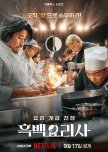
"Are they Squid Gaming us?"
Culinary Class Wars managed to highlight the Korean culinary world’s hierarchy without being mean spirited even with layers of ambition and main courses of egos served piled high. Chefs and judges Baek Jong Won and Anh Sung Jae were the ring masters who declared who stayed and who went home in this high stakes cooking competition.Eighty chefs, many self-taught or working as street vendors or in average restaurants came to take on 20 professional fine dining chefs for a prize worth 3 million won/215,000 (USD). The chefs on the lower rung of the hierarchy were titled Black Spoons and only given nicknames. The professional chefs were given the title of White Spoons and their real names were used. Only 20 Black Spoons would move on to the next level after the first challenge. After the winnowing, Black Spoons went head-to-head against the White Spoons in ever demanding challenges.
My favorite challenge was the Blindfolded Challenge. I’ve seen too many cooking shows where the established chef is treated deferentially and preferentially. The Pros freaked out when their advantage diminished. With only their senses and not their sight, Baek and Anh had to determine which dish tasted best. For this alone, I gave the show a .5 bump. The Infinite Cooking Hell mission would be my second favorite as the chefs had to utilize the blandest ingredient I can think of in numerous dishes. Honestly, I would have preferred for this to have been the semi-final with ALL of the remaining chefs participating to see what they were truly made of. The final by comparison was a limp noodle and anti-climactic. At least have them make a three-course meal to demonstrate a range of skills.
If I have any other quibbles, it would be with the editing. The class wars took place there as well. The Black Spoons also had a hierarchy. Two of the female contestants I was invested in, had much shorter screen time than most of the male BSs. It wasn’t difficult to determine who would be the finalists due to the editing as some chefs were barely shown.* There were also a couple of conflict of interests, including using Baek’s products in one challenge. The Professional Chinese chef’s protégé was given several second chances which wasn’t a good look. The maneuvering to keep some contestants and the ratio of White Spoons vs Black Spoons even was over obvious. Also, thirty minutes to do the introductions in the first episode was overkill. I’d rather watch them cook.
The culinary social statuses were clearly delineated. Early on the White Spoons may have admired some of the cooking techniques they observed by the Black Spoons, but often acted superior as if their skills were untouchable. After all, many of them were award winning, well established, famous, and far removed from prepping the highest quality ingredients for the meals served in their restaurants. The Black Spoons were mostly chefs fighting for recognition and validation, true hustlers innovating with the ingredients available to them. I will nearly always root for the underdog, and cheered each time a BS took down a WS, even more so when the WS had a shocked look as they tried to process losing. My heart broke for one Black Spoon who beat a White Spoon and was so overcome he pulled a peasant in a Sageuk and kneeled head to the floor in respect and was never acknowledged by the old dude.
The White Spoons had only their egos on the line. At first, they didn’t seem too worried about the rookies. As the WSs began to hit the floor it became obvious the BSs had nothing to lose and were playing for keeps. They weren’t just fighting for prize money, they were fighting for recognition and to show they were worthy of respect. The biggest exception I had to the White Spoons was Edward Lee. He embodied not only a competitive spirit but also a humility unusual for someone skilled in discovering unique and clever flavors and presentations. I’m still a little salty that one of his dishes was significantly downgraded over his name for the dish and not the flavor. Now that is culinary elitism at its best.
Many of the Black Spoons knew their chances of winning were slim, but they still persevered to prove themselves to others and to themselves. Despite working in what would appear to be basic places with whatever ingredients they could afford, they took pride in their food and desired recognition. Often judged for their lack of fine dining skills, they still prepared delicious food. I’m okay with the winner though the result felt too scripted, a common drawback in most cooking competitions. I was just relieved they didn’t turn it into a Game of Thrones or Squid Games to make the show more dramatic. Watching chefs work to create delicious and memorable dishes was thrilling and entertaining enough.
"Once you start walking you have to go all the way through to the end." Edward Lee
16 November 2024
*
*
*
*
*
*
*
*
#JusticeforTheLunchLady! I hated that her head-to-head competition with a White Spoon was barely shown. This was the biggest upset of that challenge for me! She survived several rounds and had very little screen time. She and Hanbok Auntie punched above their weight throughout the competition.
I did love the Italian chef's response when he lost, "Fabri always stays positive" while holding up finger hearts. And classy! I knew he was screwed when their ingredient to work with was skate.
While her attitude could sometimes grate, I had to admire Jung Ji Seon for her tenacity to become a famous chef in a profession often ruled by men.
Was this review helpful to you?

Powerful and inspiring short film
Beautiful Run was a powerful and deeply touching short film. I have watched it twice and cried twice-something quite unusual for me. I’m not sure how realistic it would be, but I hope with all my heart it could be.A young girl with a disabled leg who uses crutches cares for her bedridden father often missing school. Short on food and medication she applies for the most menial of jobs but is rudely turned down as people glance at her leg. She happens upon a flyer for a marathon with a cash reward and enters it. At first, she receives the same disdainful side-ways glances from the other runners, but during the arduous journey as she determinedly perseveres with one leg, her efforts begin to change the hearts of the other runners.
At less than seven minutes long the story is told with almost no dialogue. Only the careful editing and expressions on people’s faces tells the story. Near the end there is clarification through group messaging, but other than that everyone is silent. The music also nurtures the audience’s feelings. The nameless young woman never complains, never breaks down in tears, she just relentlessly keeps moving forward with her committed resolve.
This girl’s selfless persistence in a grueling physical act of love broke through people’s prejudices and began to bring out the best in others. The film stopped short of being patronizing. Beautiful Run made me believe that good does exist and people can open their minds and hearts to others. “Gratitude makes the impossible happen.” Let it be so.
10 June 2024
Was this review helpful to you?

"This battle is a fight to live for our future"
When I saw the Toho logo my heart jumped with joy knowing Godzilla was back home where he belonged. In Godzilla Minus One he was no longer a comic character playing catch with a giant lobster or the King of the Kaiju restoring balance to the Earth. He was a destroyer and an indictment on humankind’s hubris and a reminder of the horrors of war. If Japan was at level zero after WWII, Gojira put them at minus one when he surfaced from the depths of the ocean with a terrible judgement.Near the end of WWII, Shikishima Koichi is a kamikaze pilot who lands his plane on a small island held by the Japanese ostensibly for engine trouble. It’s not long before the mechanics realize he has run away from the fight. They don’t have long to berate him when they are attacked by a monster the locals call Gojira. When Shikishima freezes once again, he is labeled a coward by the only other survivor. Back home he is reviled by a sister for returning alive, as she blames the country’s problems on his failure. Koichi takes in a woman with an orphaned baby, unable to throw them out when Noriko makes herself at home. The war isn’t over for Koichi as he is paralyzed with regret, guilt and PTSD and unable to move on with his life. When Gojira heads for Japan, the pilot will have a second chance to redeem himself and his honor.
Godzilla Minus One succeeded in two areas. Firstly, they went back to Gojira’s mythology and his evolution from nuclear testing. Gojira was personification of the fear and memory of atomic weapons, something the people of Japan had suffered horrifically from. He was also a punishment for Japan’s militaristic era and the damage done to others and their own people. This monster claimed his territory with a fearsome rage. Capable of regenerating, modern weapons were all but useless against him. Secondly, for one of the first times since the original, there were compelling human characters with interesting stories seamlessly woven into Gojira’s appearance and threat. Too often, the humans were dead weight in Toho’s Gojira films saddled with mediocre actors and dialogue. Koichi was a complicated character and his boat buddies were developed enough to remember them. Noriko as a character was thinly but heroically drawn. Even the characters who reviled Koichi came around to being more well developed.
If there was one flaw, the horrors of the war were laid solely at the government’s feet, which categorically absolved the rank and file from atrocities committed during the war. And yes, the government had the “best ability of spinning and hiding information from the masses”. The government also, “...treated our lives too cheaply...Tanks with insufficient armor, poor supply chains-leading to starvation and disease…and fighter planes without ejection seats…as well as kamikaze and suicide attacks.” The characters emphasized living for their country and its future instead of dying for it even as they bravely faced a seemingly indestructible foe.
For a film made for 15 million dollars (USD), it looked far richer. The special effects were excellent whether it was Gojira’s atomic breath, miniatures, ships, or buildings crumbling like houses made of cards. Gojira himself, was frighteningly majestic and terrifying. Able to regenerate, he did come across as a vengeful god. This film deservedly earned an Oscar for Visual Effects. One last little production note--Sato Naoki is credited as the composer but much of the score was a reworking of Ifukube Akira's iconic Godzilla theme.
Not since the original Godzilla (1954) have I enjoyed a Big G film this much. Gojira was a merciless, destructive force, created by unnaturally splitting atoms. The people of Japan united not to fight to the death against this formidable opponent but to use all of their abilities in a battle that would ensure that they could live for their future. In the face of this harbinger of death, there were those who found redemption, love, and healing. Good job Toho! You made a film worthy of the original and a wonderful way to celebrate Gojira’s 70th anniversary.
2 June 2024
Was this review helpful to you?
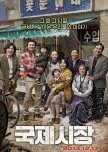
This review may contain spoilers
"Put the family first!"
Cue the violins and bring out the box of tissues because Ode to My Father will shamelessly and successfully pull at your heartstrings. This film is not only an ode to one father, but two, as you follow a boy from childhood to old age selflessly working to provide for and keep his family together just as he had promised his father he would do.The film follows Deok Su as a child in 1950 fleeing Hungnam as the Chinese were overrunning the city. His only task was to hold his little sister's hand as the family sought shelter on a US ship, the USS Meredith, accepting refugees. In the stampede to find a way onto the ship, his sister was lost. When his father turned back to find her, he tasked Deok Su to be the man of the family and always put the family first if he could not return. Deok Su took his promise seriously when they arrived at his aunt's shop in Busan. Accompanying him on his various entrepreneur ventures was his best friend, Dal Gu.
Deok Su would later go to Germany to be a coal miner, a dark and dangerous job, in order to pay for his brother and sister's schooling. There he would meet his future wife, a Korean woman studying to be a nurse, Young Ja. He and Dal Gu returned home when the Germans stopped renewing their work visas. After his aunt's death, his uncle wanted to sell the Kkotbun Shop. Once again, Deok Su stepped forward, this time taking Dal Gu with him to Vietnam to earn money as "technicians". The two friends would face the same choice the Americans did at the North Korean port when as they were fleeing Saigon women and children begged for them to let them onto their boat. In 1983 Deok Su and Dal Gu would go to Seoul in the hopes of finding his father and sister when the Korean Broadcasting Services showed families being reunited through their programs.
Deok Su's grown children cannot understand why he won't sell his shop or change the old-fashioned name. Deok Su who so easily sacrificed his own dreams and took dangerous jobs to provide for his family, privately confessed to his father's image how difficult the struggle had been. After promising his father he would always put the family first, the last words he heard his father speak were that he would meet them at the Kkotbun Shop. Never saying his purpose aloud, Deok Su kept the shop open in case his father survived so that he could find his way to them.
This was a nostalgic look back for older Koreans who after surviving the Japanese occupation were devastated by the Korean War. Their country divided and some families divided by the new boundaries, dealing with political and economic upheavals, mothers and fathers worked hard to feed and shelter their families among the continuing changes around them. The main character in this film shined shoes, dug coal, traveled to Vietnam during that war, and later ran the family shop. He did all this to make things easier for his family and children. In a letter to his wife, he told her how grateful he was that it was he that suffered and not his children. And of course, his children, as children are wont to do, did not fully understand the hardships and struggles their parents went through for them.
Lest you think it was all melodrama, fear not for there were gentle moments of humor that lightened the mood. As much as the film was about family and sacrifice it was also about friendship. It was heartwarming to watch Deok Su and Dal Gu stand by each other from childhood to old age.
A small historical note: The USS Meredith was credited with one of the largest humanitarian rescues when the ship dumped its cargo and took on 14,000 refugees in a ship designed for 12 passengers and 47 crew.
I am not a crier, but this movie moved me to tears on several occasions. I knew the director and music director were setting me up for the big emotional moments and did everything but present a cue card that said, "Cry now!" It didn't matter, the milestones in this film though far removed from my life still reminded me of the sacrifices and relentless hard work my parents and grandparents went through to make my life easier. And like the director, who made this film as a thank you to his father, it reminded me to say thank you to those who went before me. The desperation during times of political upheaval for people who have nowhere else to run is truly heartbreaking. I cried for the families around the world who have been separated by war, death, and poverty and felt gratitude for the ones left behind who have fought tenaciously to hold the survivors together and refused (and still refuse) to give up.
The film could swell emotionally and had an ambitious overview. It helped that the acting was on point and didn't boil over into being overwrought which kept the characters grounded. With all of the time jumps it could have been easy to become lost as we were given a personal tour by Deok Su through pivotal points in Korean history. Though the story covered decades and several countries, Ode to My Father was at its heart a simple and intimate story of a man keeping a promise to his father. Unabashedly melodramatic? At times. But this film was also inspiring and uplifting and a lesson in the power of tenacity. If you are looking for a movie to touch you, look no further.
4/24/23
Was this review helpful to you?
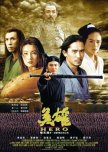
This review may contain spoilers
All is fair in love and war...
For those who love wuxia or Zhang Yi Mou's films, Hero will weave around you, wrapping you in its hypnotic effects of color, music, scenery, and skilled performances. The film is a poetic examination of the different facets of being a hero and the sacrifices required. As a fan of both wuxia and Zhang Yi Mou I found this film breathtakingly beautiful and emotionally heartbreaking.It is helpful to understand on the first watch of Hero that the story is not told in chronological order or from a single viewpoint. Each viewpoint and version of the story has a particular color hue. When the warrior Nameless is brought before the Qin emperor, gray and black dominate the color scheme. Nameless has killed the three most infamous and dangerous assassins in the realm granting him unprecedented access to the emperor, coming within 10 paces of him with only several rows of candles between them. The emperor asks Nameless to explain how he came to possess the weapons when even 3000 soldiers could not acquire them.
Nameless (Jet Li) tells the emperor a story of how he defeated Sky (Donnie Yen) and his silver spear in the rain accompanied by an old blind man playing the guqin. Every time I watch this movie it is a treat to see Jet Li and Donnie Yen fighting in the rain with water dripping from the rooftops. Next, in a world gone crimson, Nameless explains how he defeated the warriors and lovers Snow (Maggie Cheung) and Broken Sword (Tony Leung). Broken Sword believes that calligraphy and sword fighting are intertwined. He and Snow are the masters in a calligraphy school drenched in red but have a rift driven between them. This vermillion school is the home of primal emotions-jealousy, hate, lust, and revenge. Nameless wants a banner with the unique and 20th version of the word "sword". This memory has a sequence with an extraordinary fight between Snow and Moon (Zhang Zi Yi). In a spiraling storm of golden leaves the two women swirl and parry until blood is drawn and the leaves echo the color of life and death.
The emperor doesn't believe Nameless and gives his version of events now told in blue. The characters are calm, clear thinking and accepting instead of being ruled by their passions. Instead of Nameless ending up with the swords because of vengeance, this time the lovers willingly hand over their swords in order for the skilled Nameless to kill the emperor. After Snow sacrifices herself Nameless and Broken Sword have a balletic battle over a tranquil cerulean lake.
Finally, the truth is told in white as death hovers ever near for the characters and the genuineness of their motives is revealed. The emperor's memories of Snow and Broken Sword attacking him three years ago are in green with floating green curtains hanging from the throne room ceiling. In this emerald world Broken Sword had a moment of clarity and that clarity distanced Snow from him.
Zhang Yi Mou's lush and color saturated frames were romantic and stunningly spectacular. Every version of the events was filtered through the chosen color-lighting, wardrobe, and sets. He is a director who always knows how to get the most out of nature's scenery whether in the wind blown desert or a verdant hillside. Tan Dun's score was splendidly lovely and mournful.
This film had a dream cast. Jet Li's reserved acting was perfect for the Nameless and committed warrior. Maggie Cheung and Tony Leung have never looked more beautiful. Snow and Broken Sword had a tender yearning for each other tragically tethered to her burning desire for revenge. They were truly the emotional heart of the film. Neither the lovers nor their swords could ever be parted. Their final scene was emotionally shattering. Zhang Zi Yi played Broken Sword's servant, Moon. Thinly drawn, she filled it out as much as she could. Donnie Yen was only briefly featured and brought the martial arts credibility to go along with Li's. Chen Dao Ming gave the right amount of balance, maybe more humanity than he deserved to the tyrant emperor.
Despite being a wuxia, the fights were not the main thrust of the story, even though they were well choreographed and shot. For those not familiar with the genre, the fights often relied on wire work. Though most of the actors were quite graceful as they danced and twirled in the air, there were a few gaps. The choreography tended to err on the side of the visual instead of the realistic which made for imaginative sword work. Jet Li moving through the rain drops is still one of my favorite movie images. The large Qin army raining down impossibly numerous arrows on the calligraphy school with two characters countering them conveyed the dire situation of the heroes and the high stakes.
The only thing that kept this film from being perfect for me was the ending. The emperor's adage that the brutal destruction of his enemies and annexation of their lands was for the greater good and the hero's acceptance of this was disturbing. I thought it was ironic that the old calligraphy master said, "Qin arrows can never annihilate our written words." In reality, the emperor did just that by massive book burnings and burying alive over 400 scholars who disagreed with him. I do agree with Broken Sword that the goal is to be rid of the desire to kill and the need for the sword and to live in peace with one another. Because this is not my country and history, I do not have an educated view on this emperor, only a limited personal opinion. Whether desiring to kill the emperor to prevent further war or letting him live to prevent further war, the heroes were willing to sacrifice all for their beliefs.
Despite the ending, I loved this film. The haunting score, the lush colors, fanciful fights, and sorrowful love story pull me in every time. In large part due to the stellar cast and Zhang Yi Mou's exquisite directing style, I have found few wuxias better than this one.
3/27/23
Was this review helpful to you?
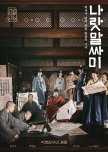
This review may contain spoilers
The world is not ruined by the truth
The King's Letters gave a fascinating glimpse into the creation of Hangul, the Korean alphabet. It was set in 1442 with King Sejong the Great determined to do something for his legacy as the sands were quickly running through the hourglass of his life and reign.The Joseon court was largely ruled by ministers and scholars schooled in Confucianism and Chinese writing. They were not at all interested in developing easily learned phonetic letters for their language. Sejong wanted all of his people to learn to read and write which would have meant more competition and a threat to their power and positions.
King Sejong was not to be deterred. An envoy of Japanese monks arrived demanding the Tripitaka, the oldest collection of Buddhist scriptures written in Hanja on over 80,000 wooden blocks. A series of dots connected him, with some help from the Queen, to the Joseon Buddhist monk in charge of the Tripitaka. Sejong discovered the monks could chant, read and write in Sanskrit which was based on phonetic letters. His Eureka moment occurred after years of failed attempts to create an easy and useable alphabet. Promising the monks he would build a temple in the capitol if they would help him with the alphabet, an uneasy alliance was formed.
Much of the film covered the monks and king working through their language and breaking it down into a total of 28 consonants and vowels. Instead of memorizing thousands of characters, what they were developing would make it much easier to be literate. Sejong wanted the letters to be elegant and concise like geometry using only lines, dots, and “facets”. The major conflict of the story was keeping what they were doing from the Confucian court. Due to conflicts with the Buddhists during the Goryeo Dynasty, there were hard feelings on both sides. Most of the tension, however, dealt with the ailing king fearing he wouldn’t live long enough to not only create the letters but also to spread their use so that they would be protected and take root.
Spoiler alert! Of course, they succeeded as we all know. Sejong did end up giving the Confucians credit to try and gain their support. It took time for the “vulgar” or “women’s” script to be accepted. Thankfully, women and fiction writers used it as well as Buddhist monks which kept it alive until it took hold. In 1849, it was adopted as Korea’s national writing system. Even the Japanese during their occupation who outlawed it, couldn’t kill it.
The King’s Letters did tend to slow down and become repetitive in the latter part. I am enough of a documentary geek that this felt like an enjoyable one only dressed up and with excellent acting. Song Kang Ho (King Sejong) had great chemistry with both Park Hae Il (Monk Shin Mi) and the late Jeon Mi Seon (Queen So Hun). The cinematography, sets, and costumes were all lovely.
King Sejong was playing the long game, he wanted an educated people who would only make the country stronger and more enduring. His vision didn’t come to bear overnight or even in his lifetime, but he planted a seed that did take hold, blossomed, and bore fruit. Is still bearing fruit. A legacy of knowledge which can break down class lines and open communication is not such a bad legacy after all.
10/10/22
Was this review helpful to you?
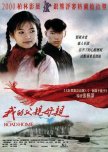
This review may contain spoilers
Love is found on The Road Home
The Road Home tells of a simple love story, one that is simply beautiful and sincere. It is also a look at how the past informs the present and ties those in memory together.Yusheng is a grown only child returning to the snowy mountain village where he was raised upon receiving the news that his father has died. His mother will not be consoled until he promises to have his father's body returned to the village from the nearest city by foot, a traditional custom enacted so that the dead can find their way home. As he discovers, it will not be easy, for the only people left in the village are too old or too young to be of help. He perseveres for his mother's sake and as he does he reminisces about his parents' love story.
The present is told in black and white, but as the past opens up it was like leaving Kansas and stepping into Oz. Director Zhang saturated each scene in color, making every shot worthy of being framed. Zhang Zi Yi as Di, in her first role, was ethereal as the eighteen-year-old girl, wearing pigtails and a bright red coat. The village was building its first schoolhouse and it was love at first sight when Di laid eyes on the schoolteacher who rambled into town. The small village was Luo's first job, though well educated he hadn't been able to find work until someone brought him into the mountains. On the road Di would walk the extra distance to the well by the schoolhouse just for the chance to hear his voice. On the road she would watch him walk children home and then stealthily follow him on his return until the day she emboldened herself enough to meet him. When Luo had to leave because of a political offense, Di waited for his return on the road.
Little happens, but even a broken bowl or a lost hair clip have meaning. A bowl of dumplings carried by a girl racing through the hills, propelled by young love has more meaning than a thousand sonnets. The villagers with their traditional roles look out for each other. Di and Luo have few words of dialogue but their earnest looks and actions speak volumes. Yusheng's voice over narration is almost like he's reading a book as he recites their story that he and the other villagers know by heart.
Zhang Yi Mou's use of light and color never fail to mesmerize me. He gets the most out of natural scenery whether it is a golden forest or snow covered fields. He also knows when to hone in on his actors and Zhang Zi Yi made it easy for him with her lovely expressive face. There was no doubt his camera loved her face and movement as Di ran through the mountains for a glimpse of Luo. The softly romantic music enhanced the picturesque scenes and gently developing story of true love.
The film revolves around Di, Luo and the cherished schoolhouse, both in the past and in the present. Traditions and customs thought forgotten give meaning to many in the present as Luo is brought back on The Road Home to be laid to rest. Love is both lost and found on The Road Home. Remembrance and family ties are renewed on The Road Home. This film resonated with me as Yusheng came to terms with life away from the village and the importance of the past as he traveled The Road Home. Quietly simple, the path on The Road Home is one worth traveling.
9/21/22
Was this review helpful to you?
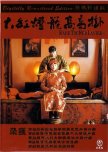
This review may contain spoilers
"People are ghosts, and ghosts are people."
The cold stone complex with glowing red eyes in Zhang Yi Mou’s Raise the Red Lantern bids young women into its luxurious lifestyle. Afterall, it’s just as easy to marry a rich man as it is a poor man. Or is it?Gong Li stars as Songlian the newest concubine of a rich man in this gilded cage of competitive horrors. Educated but with few options after her father dies she marries an older man. She quickly learns that the women and servants are pitted against one another in a popularity game to garner the master’s favor. Red lanterns are lit in the courtyard and living apartment of the woman he chooses for the night. The clickety clack of massage hammers used on the chosen one’s feet turns into a Pavlov’s bell for the women. The master’s idea of foreplay is something akin to “brace yourself darlin’” but the women do what they must to attract his attention and keep it.
Other than the privileges the chosen one temporarily receives, the concubines hold no power. They are largely interchangeable, this is the territory of the powerful master and his game and rules. The women’s fate is tied to pleasing him and gifting him sons. In the ruthless conflict between the concubines, betrayal and tragedy are always near at hand.
Master Chen’s face is never focused on. His is the face of oppression and rigid familial customs, the ringmaster in the tragic circus.
Songlian discovers that the people in the huge complex are largely ghosts living in the house abiding by the rules of ancestors long gone. She tries to rebel, game the system, and in the end becomes ostracized and alone. When she witnesses an unspeakable act she realizes that she is trapped with only two ways out-death or madness.
Raise the Red Lantern criticizes a number of social structures as well as the plight of women during this time. Outdated cruel traditions that guide their everyday life are firmly in the director’s bullseye. It is gripping and difficult to watch at times.
Songlian is not an easy character to like as she can be very abrasive and snobbish. Her youth and independent nature cause her to chafe under the ridiculous rules and volatile hierarchy. She learns the hard way the price for disobedience. Gong Li’s expressive face helps us to understand how we should feel as well. Rebellious. Trapped. Isolated. Horrified. She gives a gloriously understated performance as a young woman caught in the chains of family customs; the players involved more like ghosts ensnaring fresh faces to drag into their macabre story.
Zhang Yi Mou saturates some scenes in a rich red light, the color of birth, life, and death. At other times an icy blue hue overtakes the scene driving home the solitariness of the one not chosen. The large complex could almost be given a credit as well the way Zhang lovingly uses the stunning architecture to showcase the concubines’ limited stone world. There was no soft place to land amongst the hard edges. The lush colors of their costumes played in stark contrast to the institutional banality. It was a remote facility both physically and emotionally.
The sets, concubines, and costumes are intoxicatingly beautiful but lying beneath them is a grotesque cruelty. Raise the Red Lantern is a treat for the eyes as most of Zhang Yi Mou’s films are. Though difficult to watch this story of the powerful’s abuse of women and tradition is one worth trying.
“What do people amount to in this house? They’re like dogs, cats, or rats, but certainly not people.”
1/12/23
Was this review helpful to you?

This review may contain spoilers
How to write a review on a 3-minute short movie? Make it short as well and hopefully meet the MDL word requirement. She Brought Colour into My World pushed the boundaries of censorship with this story of love and friendship between two women. A lovely young woman resides in a world of stony black and white. The new neighbor has just returned from studying abroad wearing an ethereal white dress. Dressed in beautiful clothes both traditional and Western, the two neighbors meet and have an instant rapport and the young woman's world is filled with color. The woman in white regales her with stories from outside the walls and gives her a gift. They explore the city, dance and hold hands. In 3 minutes a whole relationship blossoms free from censorship or at least for a while and a choice must be made. Stay in the world of color or return as before to cold stone.
I enjoyed this short film that pushed the boundaries with its open subtext and told how love can bring color into our lives and just as easily take it away.
29 January 2024
Was this review helpful to you?

This review may contain spoilers
The devil is in the details
As this is a 14 minute short film I won’t say much. You need to be prepared for very graphic talk about sex. It is not for the squeamish.The premise is a man meeting a school girl to have sex with her thinking she is a virgin. They begin to talk and he nauseatingly starts negotiating the price according to what he thinks her experience is. If you’ve gotten this far and are as repulsed as I was by him, don’t give up, keep going…
For a short film the production values were good as was the acting. The filmmakers packed a wallop of a story in those short minutes.
Again, not for the squeamish.
11/14/22
Was this review helpful to you?
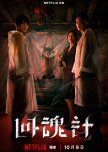
"It's not hopelessness that makes me suffer, but the endless hope"
When two grieving and angry mothers feel that justice has not been served, they bring a killer back to life in order to exact their revenge in The Resurrected. Vengeance turns out to not be so slick and clean, nor easily attained.Wang Hui Chun is vigilant in the care of her daughter Jin Jin who lies in a coma in the distant country of Benkha. Her abusive, unfaithful husband continually berates her for not pulling the plug on their daughter but Hui Chun clings to the hope her daughter will one day awaken. Widow Chao Ching’s daughter Hsin Yi was brutally murdered by the same people responsible for Jin Jin’s coma. The mothers use their own resources to bring the killer to justice with the aid of another victim’s mother. When the killer dies “with dignity” it is too much for them and they put into motion an unnatural plan to resurrect him. Chang Shih Kai is not so easily manipulated and begins to create doubt in the mothers. Hui Chun and Chao Ching also grapple with the powerful people behind Chang, who could prove to be far more dangerous than the dead man.
The strength of this drama lay with the lead actresses. Shu Qi as Hui Chun was the follower of the two, usually siding with whatever Chao Ching decided on. Her world was swallowed up in debt and caring for the comatose Jin Jin, and drowning in endless hope. Angelica Lee’s Chao Ching came across as hard, obsessive and ruthless in her desire for vengeance. Broken by the cruel death of her daughter and her own guilty feelings, her only reason for living was to punish anyone involved with Hsin Yi’s suffering. She doggedly followed every lead offering zero compassion. Fu Meng Po as the killer Chang Shih Kai spent most of his scenes bloodied and tied up. He had to dig deep to bring nuance to the mothers’ despicable foe. While the writers tried to soften him with a tragic backstory, it had no effect on my view of him. He and his organization emotionally and physically tortured young people, killing them when they were no longer useful.
I had no problem with the mothers’ desire for vengeance on the man who tortured and killed their children. Hsin Yi died a horrific death. A mother’s need to protect resides deep in her DNA. Knowing her child was in danger, crying out for her and she’d been unable to save her, would be a parent’s worst nightmare. The first few episodes were enthralling. Even the social commentary on the wicked ways of the rich fit into the story. Then it seemed the writers didn’t trust their characters and added mysterious layers that were unnecessary and garbled things up. KISS is always best (Keep It Simple Stupid). The last few eps ran off the rails, though they managed to salvage the two mothers after tearing their characters up. The writers also reverted to a trope at the end that was tired and overused by the 1980s. I don’t think they were setting up a sequel, I think it was just a cheap trick at a jump scare.
I loved watching Shu Qi and Angelica Lee delve deeply into their characters’ pain and anger. They were quite compelling to watch. For these two alone, it was a drama worth giving a try. Despite the erratic and convoluted nature of the writing in the last three episodes, I still enjoyed this drama overall. The Resurrected was a dark, twisted vengeance drama that will not be for everyone. Please take note of the triggers. Others may find it far too tame. The supernatural element didn’t play into the story too much. The real draw for me was watching two, actually three women process their grief and rage in different manners, all by skilled actresses.
17 October 2025
Trigger warnings: Torture-both of the guilty and the innocent. Sexual assault. Sexual content. Brief nudity. Drug use. Smoking. The occult.
Was this review helpful to you?
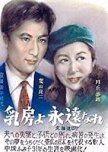
"I've lost my breasts. What can I write about?"
Tanaka Kinuyo tackled three sensitive topics for 1955 in The Eternal Breasts aka Forever a Woman—divorce, breast cancer, and a woman’s sexuality. I'd watched the other four films she directed but saved this fifth one for last as I knew it would be the most devastating for me. Having lost the two most important women in my life to it, I take this disease personally.Fumiko and her two small children, Noboru and Aiko, make the most of their days. Her mother helps the family out when she can as Fumiko’s husband has given up on finding a job, is for all practical purposes a drug addict, and an unapologetic adulterer. After having enough, Fumiko files for divorce. Her only solace through her marriage and divorce was the poetry club she belonged to. Because of the depressing nature of her marriage her poems were described as “overblown.” An old friend sends her poems to a Tokyo newspaper looking for new talent and she is “discovered.” Unfortunately, Fumiko also discovers she has late-stage breast cancer. A young reporter enters her life, more concerned for her health than the story.
Discovering you had late-stage breast cancer that had metastasized to the lungs was a deadly diagnosis in 1955. In truth, if it was already in her lungs, it would have been in her brain and limbs as well. Mastectomies were the primary treatment. Chemotherapy was in its infancy and not trusted. Radiation and some hormone therapies were about the extent of possible medical regimens. Fumiko was confined to the hospital that had bars on the windows and doors, functioning effectively as a cage. Her children were not allowed to visit, which for a mother would be barbaric. Her roommates were transferred to a different room as they neared the end of their life and then the long dark hallway to the morgue. It seemed like a lonely way to spend one’s final days.
Despite being relegated to a room waiting to die, Fumiko began to work through her feelings and thoughts. At first, she felt less like a woman without her breasts. As time went on, she came to realize she still had longings and desires. Her poetry reflected her fight with cancer and death, and what it meant to be a woman. Could she still be a woman without her breasts? She began to speak her truth and her mind more openly. At this point what did she have to lose? The same society that kept her from attending her brother’s wedding and caused her to marry a man she didn’t care about could no longer censor her thoughts or actions. She was dying, what else could they do to her?
The women around her stayed by her side and cared for her and her children. Her brother won the good brother award as he, too, didn’t shy away from her as some men are wont to do. The young reporter, Otsuki, gave her the joyous gift she had longed for. While the mystery after death must be walked alone, Fumiko was fortunate to have loved ones who cared for her.
Tanaka Kinuyo created a strong film about an imperfect woman who loved her children and family, loved poetry, loved men, and in the end was able to love her “sinful” self, unconcerned about any “unreliable gods” out there. Nakajo Fumiko, the tanka poet this film was based on, died at the age of 31, leaving behind four children and her poetry. Your Auntie Butterfly implores you to begin doing breast exams in your 20s, talk with your doctor about your risk factors, and when the time comes, march right in and get squished. The treatments now are much more sophisticated and successful, especially if they catch it early.
"Death shall lighten
and free me
to even ride
on your shoulder"
2 September 2025
Triggers: F*cking cancer
Was this review helpful to you?

"Your lines are your emotions"
If you imagine a rabbit is blue then the rabbit is blue. Adapted from a manga, Blue Period was a gentle coming of age story about a high school boy going through the motions until he discovers his passion. I have not read the manga so my review will be based solely on the film.High schooler Yaguchi Yatora excels at academics and after classes hangs out with his three best friends. Life would seem to be perfect, but he’s merely going through the motions. He finds no meaning or thrill in his days until he’s forced to take an art class. In one blue moment, he discovers his zing and something that makes life worthwhile. He throws himself into his artwork, fighting to make up for a lack of natural talent with determined enthusiasm.
Full disclosure, this kind of film is my jam. I am a frustrated artist and love watching other people perform miracles on paper and canvas even when it is fictional. This was not a film with twists and turns, in fact it was quite predictable. Yet I still enjoyed watching Yatora’s artistic journey as well as his internal journey. Forever comparing himself to others and lacking in confidence, Blue Period explored his steady growth as an artist and as a young man. This film was far from perfect, but for me it was soothing and motivational
The supporting characters were given little time. Ayukawa Yuka (Ryuji), a young transwoman, received most of the attention outside of Yatora. For the most part, the writers were sensitive and showed the prejudice she faced especially within her own family. I disliked how Yatora continued to refer to her by her masculine name instead of her chosen name, other than that he strove to be a friend to her. And Yuka gave him the advice and push forward he often needed. The other supporting characters were there to fill in the canvas.
Blue Period had no villains except for the brutal inner critic that lives within all of us. Yatora came to understand that regardless of how “flimsy and pathetic” people appeared to be, everyone deserved to be loved. Through his art, Yatora began to really see the people and world around him. He learned to stop comparing himself to others and focused on his own path that held mistakes but also wonderful bursts of insight and creative innovation. Inspiration is contagious…pass it on!
"They can't create what I can, a world all my own."
11 July 2025
Was this review helpful to you?

 97
97 343
343 13
13 3
3 2
2 3
3 6
6 1
1 5
5 1
1 1
1 2
2 4
4 5
5






















